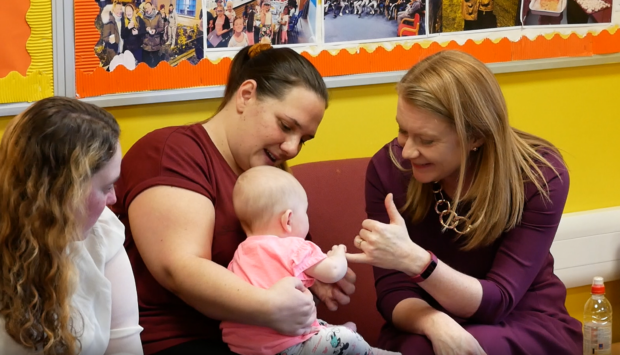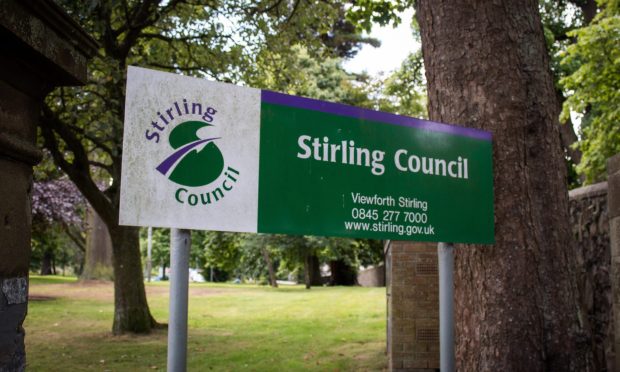The Scottish Government will have to cut, borrow or dip into its savings to fund a soaring multi-billion benefits bill, Scotland’s official economic forecasters have warned.
The transfer of more social security powers to Holyrood will result in an eight-fold increase in benefits spending to almost £4 billion by 2024/25.
Scottish Fiscal Commission (SFC) analysis also revealed that the Scottish Government’s budget is in line for a “half-a-billion-pound hit” in 2021/22.
At a briefing on the Scottish budget, the SFC said Scotland’s social security bill would rise dramatically from £458m in 2019/20 to £3.435bn in 2020/21.
The amount spent would increase further to £3.578bn in 2021/22, reaching £3.959bn in 2024/25.
We expect social security spending to reach £4 billion by the end of the forecast period #ScotBudget pic.twitter.com/6BipFcTyuE
— Scottish Fiscal Commission (@scotfisccomm) February 6, 2020
New benefits to be introduced in Scotland
SFC chief executive John Ireland said proposals to give Holyrood more powers meant the UK Government was devolving around £3bn of disability benefits.
These include Personal Independence Payments, Attendance Allowance and Disability Living Allowance, from April 2020.
In addition, the new Child Disability Assistance opens for applications in Scotland this summer and will replace Disability Living Allowance for Children.
SFC forecasts suggest £217m will be spent on Child Disability Assistance in 2020/21, rising to £250m in 2021/22 and £312m in 2024/25.
Looking for a one-page summary of our forecasts? Look no further. #ScotBudget pic.twitter.com/tJJdSMpMCS
— Scottish Fiscal Commission (@scotfisccomm) February 6, 2020
The new Scottish Child Payment for youngsters under six years old launches in 2020 and opens up to children up to 16 years old in December 2022.
The SFC predicted that Scottish Child Payment would go up from £21m in 2020/21 to £65m in 2021/22, leaping to £162m in 2024/25.
We expect 287,000 children to receive the new Scottish Child Payment by 2024-25, with a cost of £162 million. #ScotBudget pic.twitter.com/BXxMeJQAPh
— Scottish Fiscal Commission (@scotfisccomm) February 6, 2020
The Scottish Government will receive cash from the Treasury through Scotland’s Block Grant to fund its new social security system.
But the SFC warned there could be a funding gap. In its 147-page report on budget forecasts, the SFC said changes in the Scottish budget relative to spending in England and Wales could result in a “significant in-year cash shortfall”.
The shortfall would arise if Scottish benefits spending increases when English and Welsh spending decreases – a scenario that would result in a reduction in the cash Scottish ministers receive from the Treasury via Block Grant Adjustments.
When the Scottish Government is in control of these benefits … the bill will increase”
— SFC chief executive John Ireland
SFC chief executive John Ireland added the signs were that the Scottish Government would pursue a relatively generous benefits policy, resulting in an increase in expenditure.
“Everything we know about the Scottish Government’s commitments from announcements through to the passage of the social security act, suggests that when the Scottish Government is in control of these benefits … the bill will increase,” Mr Ireland said.
“The UK Government is of course giving the Scottish Government some money for the devolution of these payments. But any increase because of Scottish policy will not be covered by the UK Government. So somewhere the Scottish Government is going to have to find the additional money to pay for any improvements in payments.”
Mr Ireland added that increasing demand for benefits could result in the current forecasts turning out to be underestimates. He signalled that cuts might have to be made in other parts of the budget to pay for the new social security system.
“The Government has to find the money somewhere during the course of the year to pay for those (benefits). It can borrow, it can dip into its savings – into the Scotland reserve – or it can reduce expenditure elsewhere,” Mr Ireland said.
SFC chairman Dame Susan Rice said the devolution of benefits added a “complexity” to the Scottish Government’s budget management.
“Anyone who applies for one of these benefits and is eligible will have to be paid and those numbers are unknown until they happen,” Dame Susan said.
A “half-a-billion pound hit” on the budget
On income tax, previous forecasts, which are used to set the annual budget and determine how much money Scotland receives in the block grant, led to the Government receiving more funding than it should have done.
An estimated £555 million of income tax reconciliation is therefore expected to come out of the budget in 2021/22 – which is more than the Government’s anticipated reserves and borrowing can cover.
Mr Ireland said the Scottish Government had to start thinking about “this half-a-billion-pound hit” on the budget.











